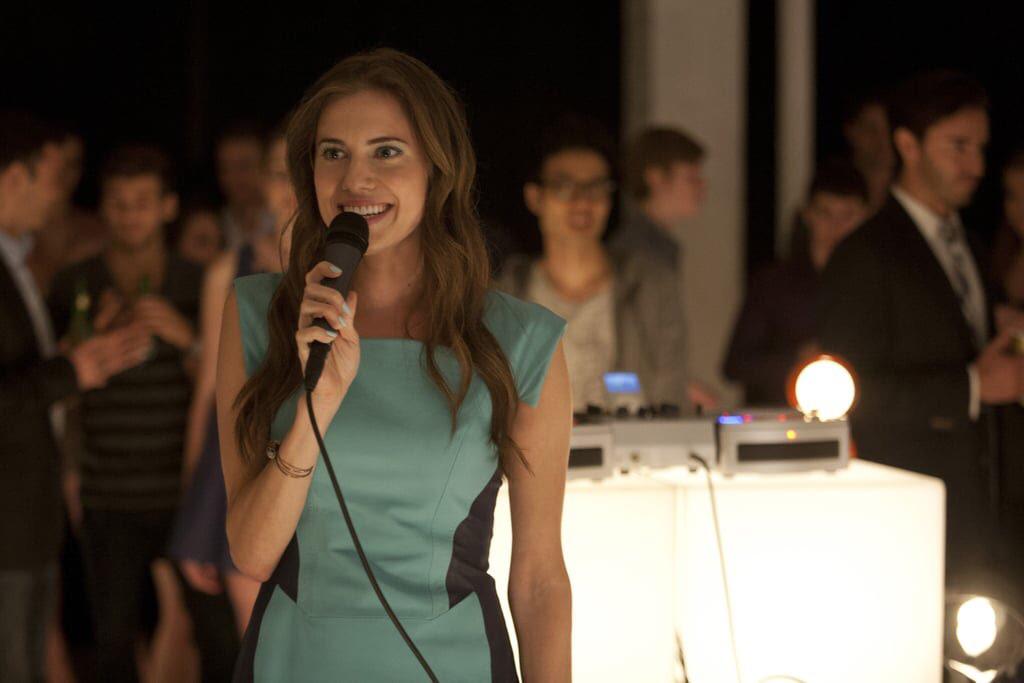narcissism, that rare commodity
Hannah Horvath wastes no time worrying about polar bears lonely on their shrinking glaciers.

Last August, as the days sank into swampiness, I drove to rural Massachusetts to visit my nine-year-old brother at sleepaway camp. It was father-son weekend, but my dad was in Belgium researching his next book, sequestered away in some anonymous, climate-controlled archive, so I would have to do. Camp was decidedly not climate-controlled. The heat was quietly reassuring, it matched my volatile internal state. I was in a strange purgatory of sorts, just a few months removed from a devastating breakup that had left me feeling perpetually queasy. Most of the fathers had arrived a day before me, which meant the only available spot for my tent was at the far boundary of the camp, on the edge of the woods. Good, I remember thinking. I'll have privacy when the dry heaves come in the morning.
I felt strangely alone those two days, like the first shot-down American pilot to be captured by the Viet Cong or one of those weird Canadian hockey kids who transfers to your college junior year. On one side stood the campers, all deeply resentful of the idea that one day, likely soon, they would begin their slow descent into puberty. On the other perched the fathers, middle-aged and widening at the waist, disdainful of my presence and equally resentful of their imminent physical disintegration. Everyone seemed to have a neat role to play - except for me.
If I had thought I would find shelter among the dads, I was sorely mistaken. A shared, exclusionary kinship existed between them; they complimented each other on their tenting skills, whooped boating-related compliments across the lake, and made Jerome Powell-related jokes that were expertly designed to be incomprehensible to anyone without a mortgage. Whenever I spoke to them, they looked at me with the affection my mom directs toward the bloated frogs she finds floating in the pool, and suddenly seemed to find their children impossibly compelling. It would come as little surprise that when I later found myself trapped by g-forces in a rogue sailboat that refused to obey my commands, turning in increasingly concentric circles toward an especially malicious rock outcropping, no Boston-based banker named Kip raced to my aid.
I arrived at camp 26 years old - the last age you can credibly claim to be in your mid-20s - and a week later I would turn 27, which as everyone knows, is when your cells begin rapidly, violently degenerating. 27 is a strange age. It is still young, young enough to watch your boss produce a horribly strained smile when you ask for more responsibility, young enough to get away with not understanding what a 'deductible' is, and certainly young enough to go out to dinner with your parents and stare at the check with bafflement, as if you've never seen one before. But it is not that young. People I know - my contemporaries, even - are getting married, birthing children, and buying homes. Some of them have bought multiple homes, which they maintain and renovate and lease to tenants presumably humiliated each time they send their rent payments to someone still using a college checking account. 27-year-olds, you see, are blossoming into slumlords - and what do I have to show?

Well, I do have this: I watched the entirety of Lena Dunham's minor masterpiece Girls - all six seasons - over the last month. It's a surprise that I waited so many years to watch, given the central role Girls has long played in my life. When it first came out, entrancing my parents, I was a sophomore in high school only just discovering the adverse effects that eleven rapidly taken shots of Jameson would have on my body. One of my fondest sixteen-year-old memories is returning home nauseatingly drunk, being greeted by Marnie Michaels spouting her ethereal brand of obnoxiousness, shouting "I'm back" at the amorphous, half-asleep shapes in the living room (?), throwing my shoes in their direction (??), and then vomiting into a large bowl held by my mother. While that bowl-cum-bucket would be repurposed to serve panzanella within the week, a decade would pass before I substantively revisited Girls. And still, its legacy endures.
Girls has assumed a constantly evolving place in our cultural hierarchy - more so than most other television shows. For a very long time, it was understood primarily as the HBO program where Dunham was seemingly contractually obligated to be topless in a dingy Greenpoint bathtub for half of every episode. This, hilariously, angered a great many people (especially the French, whose liberated mores hardly prevented them from finding her body particularly grotesque). Then, as societal norms shifted, it quickly became recontextualized as the show where Lena Dunham very bravely showed her breasts. Today, it seems to exist primarily as an artifact of sorts - a monument to an affordable Brooklyn that hardly exists anymore, and an ode to one's mid-20s, that fleeting chapter between adolescence and decomposition.
Watching Girls at 27, however, I found it to be a monument to something more poignant - a millennial optimism and arrogance that has soured and evaporated in the decade since. Much of the youth represented in Girls is a relic of the Obama era, where hope was still latently in vogue, socio-economic and racial reckonings were not yet livestreamed, and it remained possible to find a job in journalism that didn't mandate aggregating 360 articles a week. The girls of Girls - Marnie, Shoshanna, Jessa, and Hannah - are enduringly stressed, but their stressors are largely confined to the mundane: dating Adam Driver, being thirteen pounds overweight, middling job prospects. Although its characters are ostensibly weathering the lingering economic aftershocks of the 2008 recession, it is never mentioned. There are no pandemics to worry about, no erosion of democracy to lose sleep over, and certainly no concerns about police brutality or racial violence (unsurprising, considering how painfully white the show is) that hit close to home.
Girls, of course, does delve into weightier matters - its very first episode depicts an abortion appointment, and it intensely examines mental illness, drug abuse, and sexual manipulation - but most substance remains eternally subjugated beneath a pervasive vapidness and narcissism that only grows throughout its sixty-two-episode arc. That narcissism is not accidental; if nothing else, it is the central thrust of the show. Characters wantonly piss in the street then are shocked when a passing police car belches out two cops eager to arrest them, others sleep with friends' exes and are incredulous upon realizing their actions have frayed said friendships (ok, those were both the same character, but the point stands). The show is deft at giving this personality disorder its own arc - we see characters bemoaning the manipulative behavior of their parents, only to then unconsciously perpetrate the same compounding cruelty on others without realizing. When the same behavior is replicated and imposed back unto them, Girls is smart enough not to render it satisfying.
There is no warmth or purpose to this narcissism - it is not glorified - but it dominates all the same. The characters bask in their aloofness as they evade meaningful consequences, seemingly growing emboldened by their unwillingness to learn as they make increasingly less cute mistakes, and enjoy altogether luxurious, entirely un-self-critical existences. If I sound jealous and bitter, it's only because I am.

To be 27 today is to enjoy very little of that luxury. The fading youth of today retain every iota of the narcissism each passing generation holds, but none of the freedom to express it as cavalierly or blithely as the Girls girls. My generation - and I use that term lightly because I am only referring to a limited group, people between the ages of 25-30 - is reminded, forcefully and every day, of the larger consequences at stake. We have matured in an era shaped by two recessions, imperialist conflict, constant societal upheaval, and a pandemic that everyone seems to have forgotten - and it has exacted a toll. The years of chaos wrought by COVID - at such a formative moment in our burgeoning youth - have left everyone quieter, more sensitive, and exponentially more anxious. We cannot afford Dunham's beautifully naive narcissism because too much of our existences are dedicated to considering how we are perceived, what repercussions will soon follow, and how much it will all cost.
Jemima Kirke, who played Jessa, does Instagram Q&As from time to time. In 2022, after a fan asked her for 'advice for unconfident young women,' Kirke responded "I think you guys might be thinking about yourselves too much." She is correct. A distinctly modern neuroticism infects the brains of almost everyone I know (not just the Jews!) We are all performing minute-by-minute post-mortems (all of it multiplied by social media and its never ending referendums on what's acceptable) - wondering if that email was too passive-aggressive, panicking over whether that cover letter reads as too self-important, and endlessly questioning our identity at a summer camp surrounded by 50-year-old fathers who barely notice our presence. Perhaps that is the enduring irony of a decade of strife, public health chaos, political disintegration, and climate destruction - too many who can impose change are thinking not at all, and too many who cannot are thinking much too much.
At the end of Girls (spoilers!), Hannah finds out she's pregnant - and very quickly chooses to have the child. It is a beautiful, sweet moment - one of the most selfish characters ever to grace a screen making a decision fundamentally built around elevating another - and still, watching it today, I was struck by how simple her thought process was compared to my generation's. One of my classmates at Middlebury wrote an essay that beautifully captures the contemporary complexity around a question as simple as "Should I have a kid?" No age group before ours has considered the query with as much existential dread. We cannot answer it without first acknowledging our burning planet, the challenges of the decades to come, and the hopelessness that defines how many of us evaluate the future. Hannah Horvath, in contrast, wasted no time worrying about wildfires and polar bears lonely on their shrinking glaciers.

Perhaps it is unfair (and slightly sexist) of me to demand more from Girls. After all, no one levies critiques against Friends for failing to address Bill Clinton's regressive conservatism or asks why New Girl didn't call out Obama's drone strikes. But Girls is different than those shows - it is gritty and honest about so much of the low-level truths that structure Being Alive, and if any recent show would assert its ability to capture the anxieties and miseries inherent to the youth of the aughts, it's Girls. But maybe our world has just changed too much, too fast since 2012, and all Lena Dunham is guilty of is writing a show that was rendered immediately, unfairly, out of date.
The culmination of the father-son weekend came with a bonfire on the last night. It was a deeply meaningful event for most of the participants. Many of the fathers had attended the same camp themselves; I could see the emotions clouding their eyes in the reflections the flames left, several were transported back to when they had sat in the same wooded outcropping with their fathers by their side. At regular intervals, different father-son pairs would rise to perform pre-prepared bits. One duo did magic, another told jokes, others sang. It was goofy and a little contrived, but I was surprised by the extent to which I was moved. The talent show was, above all, a display of vulnerability, an embrace of silliness and whimsy and lightness. The fathers had no trouble feeling, the children had no trouble expressing. Only I stayed silent, sitting there, thinking about it all.
